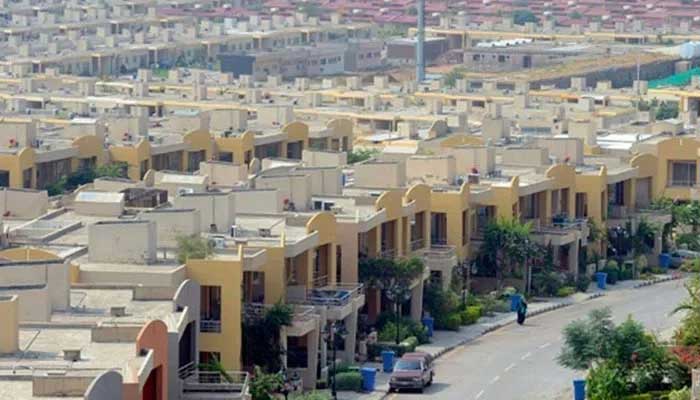Reviving real estate
One of most significant steps is reduction in withholding tax on purchase and sale of property
June 04, 2025

The government’s likely decision to introduce tax relief measures in the new budget has sparked renewed hope within Pakistan’s struggling real estate sector. After months of stagnant growth and declining investor interest, the new tax incentives aim to inject fresh energy into construction and property development activities across the country. By lowering taxes on property transactions, reducing capital gains tax, and offering exemptions on certain types of property income, the government can make real estate a more attractive investment. These measures are expected to benefit not only property developers and investors but also stimulate allied industries such as construction, cement, steel, and home décor, leading to broader economic growth and job creation.
One of the most significant steps is the reduction in withholding tax on the purchase and sale of property, which was seen as a major hurdle for genuine buyers and investors alike. Withholding tax rates have been brought down for filers, making property transactions more affordable and encouraging people to register their investments officially. The capital gains tax duration has also been revised to ease the burden on property owners who want to sell within a few years. Furthermore, the government is also likely to introduce special incentives for overseas Pakistanis who invest in real estate, recognising the major role of remittances in Pakistan’s economy. These changes are likely to generate new activity in the real estate market, particularly in urban centres like Karachi, Lahore, and Islamabad, where property prices had seen little movement in recent years.
Dr Anosh Ahmed, a Chicago-based physician, real estate investor, and philanthropist, advocates for responsible investment in Pakistan’s real estate and infrastructure sectors to promote sustainable development. Through his foundation, he supports projects in health, housing, and community growth. He encourages Pakistani Americans and overseas investors to invest in affordable housing and urban renewal in Pakistan, emphasising the importance of regulation, transparency, and tax incentives. His efforts aim to build trust between the private sector and the government, aligning with current tax relief measures to boost the real estate market and create employment.
Real estate developers across Pakistan have expressed hope that the new budget, with the likely tax relief measures, would be a positive step toward reviving the industry. They point out that a more active real estate market creates ripple effects throughout the economy, providing employment to labourers, architects, engineers, and a wide range of service providers.
Many builders had been holding back on launching new housing schemes or commercial projects due to high taxes and uncertainty in the market. Now, with the expected reduced tax burden and incentives for documentation, they feel more confident about taking on new developments. It is also hoped that this renewed activity will lead to better planning and infrastructure in urban areas, as real estate developers and the government work together on zoning and compliance.
The budget also introduces mechanisms to improve transparency and curb speculation in the real estate market. By encouraging digital property records and streamlined approval processes, the government aims to reduce fraudulent practices and restore investor confidence. With clear ownership data and efficient taxation systems, the government can also increase its revenue from the sector without placing an unfair burden on genuine investors. It is a shift from the previous trend of penalising the sector with high taxes and red tape, which often discouraged formal growth. If implemented effectively, the new reforms could pave the way for a more inclusive and structured real estate environment.
The introduction of the expected tax relief measures in the upcoming federal budget could mark a major turning point for the country’s real estate sector. These changes might include reducing taxes on property transactions, offering incentives for homebuyers and investors, and making it easier to register and transfer properties. Such measures would help lower the cost of doing business in real estate, attract fresh investment, and create a more transparent and investor-friendly environment.
If the government follows through on these reforms, it will send a clear message that it is serious about reviving one of the most important sectors of the economy. Real estate does not just deal with buying and selling property — it supports hundreds of other industries, provides millions of jobs, and offers a safe and productive channel for both local and foreign investment. Tax relief and clear regulations would make real estate more accessible for first-time buyers, middle-class families, builders, and overseas Pakistanis looking to invest back home.
The writer is a senior journalist and a communications professional. He can be reached at [email protected]
Disclaimer: The viewpoints expressed in this piece are the writer's own and don't necessarily reflect Geo.tv's editorial policy











